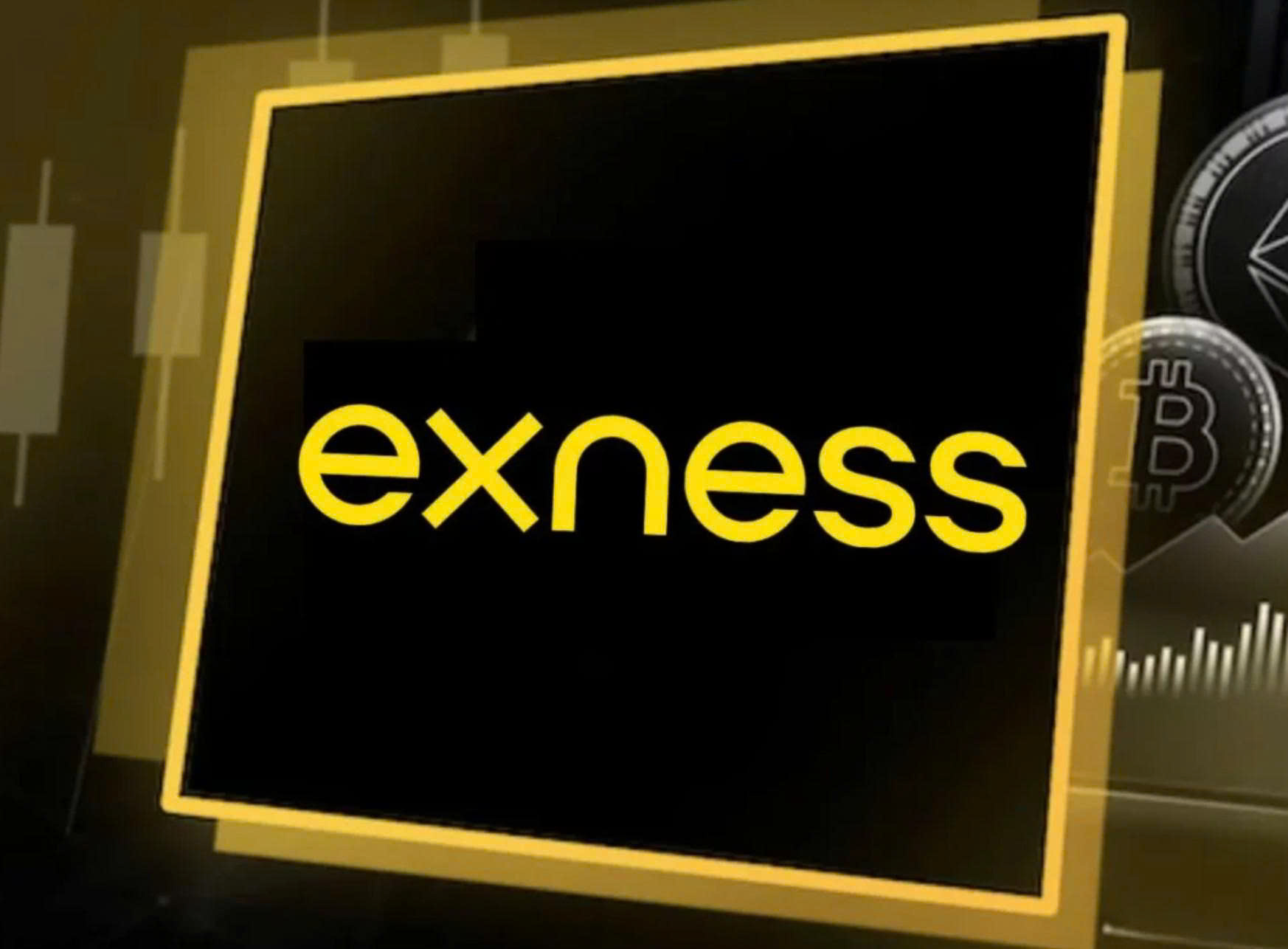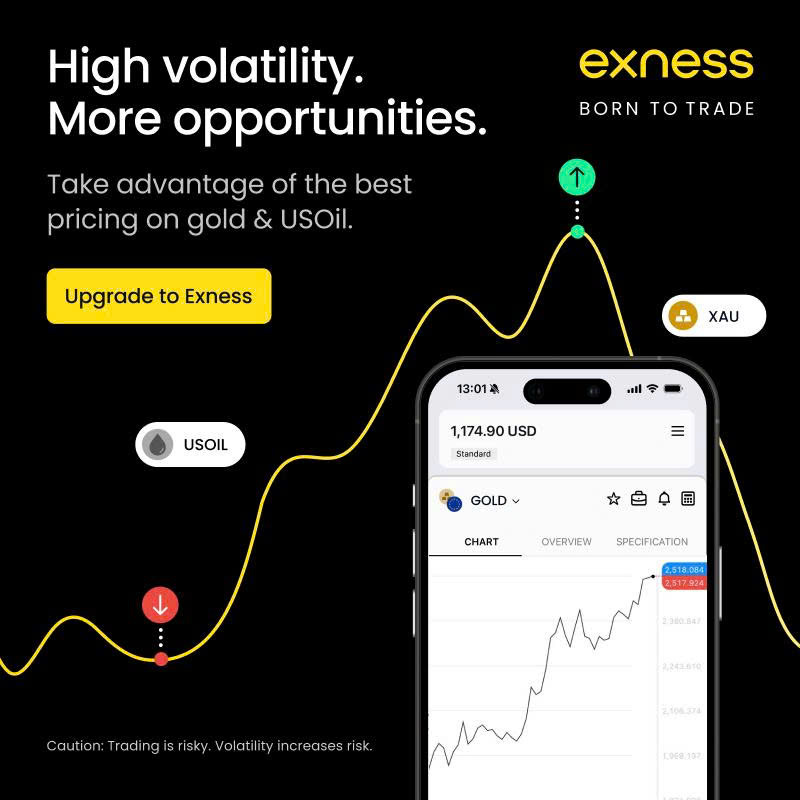
9 minute read
Is Exness SEBI Registered in India? A Comprehensive Guide for Traders
from Exness SEBI
The forex trading landscape in India is rapidly evolving, with many traders exploring international brokers like Exness to diversify their portfolios. However, a critical question arises: Is Exness SEBI registered in India? This article delves into Exness’s regulatory status, its legal standing in India, the role of SEBI, and what Indian traders need to know to make informed decisions. With a focus on clarity, we aim to provide a unique, comprehensive guide for traders navigating this complex topic.

✅ Join Exness now! Open An Account or Visit Brokers 👈
What is Exness? An Overview of the Broker
Exness, founded in 2008, is a globally recognized forex and CFD broker headquartered in Cyprus. With a client base spanning over 100 countries, Exness has built a reputation for transparency, competitive pricing, and advanced trading platforms like MetaTrader 4 (MT4) and MetaTrader 5 (MT5). The broker offers a wide range of financial instruments, including:
· Forex: Major, minor, and exotic currency pairs.
· CFDs: Commodities, indices, stocks, and cryptocurrencies.
· Account Types: Standard, Raw Spread, Zero, and Pro accounts tailored for beginners and professionals.
Exness is known for low spreads (starting at 0.0 pips), high leverage (up to 1:2000), and fast execution speeds. Its global presence and user-friendly interface make it a popular choice among Indian traders. However, its regulatory status in India is a point of concern, particularly regarding SEBI registration.
Understanding SEBI: India’s Financial Regulator
The Securities and Exchange Board of India (SEBI) is the primary regulatory authority overseeing India’s financial markets. Established in 1988 and granted statutory powers in 1992, SEBI’s core objectives include:
· Investor Protection: Safeguarding traders from fraud and unethical practices.
· Market Development: Promoting a transparent and efficient financial ecosystem.
· Regulation and Compliance: Enforcing strict guidelines for brokers, exchanges, and financial intermediaries.
SEBI regulates various sectors, including stock exchanges, mutual funds, derivatives, and forex trading. For forex, SEBI collaborates with the Reserve Bank of India (RBI) to enforce the Foreign Exchange Management Act (FEMA), which restricts forex trading to INR-based currency pairs (e.g., USD/INR, EUR/INR) on recognized exchanges like the National Stock Exchange (NSE) and Bombay Stock Exchange (BSE).
SEBI registration is mandatory for brokers offering forex trading services in India. Registered brokers must adhere to strict compliance standards, such as:
· Providing INR-based accounts.
· Ensuring transparent pricing and trade execution.
· Offering legal recourse for disputes under Indian law.
Trading with a SEBI-registered broker minimizes risks and ensures alignment with Indian regulations. But where does Exness stand in this framework?
Is Exness SEBI Registered in India?
The short answer is no, Exness is not SEBI registered in India. While Exness holds licenses from reputable international regulators, it has not obtained a formal license from SEBI to operate as a broker under Indian regulations. Let’s explore this in detail:
Exness’s Global Regulatory Framework
Exness is regulated by several top-tier international authorities, including:
· Financial Conduct Authority (FCA) in the United Kingdom (License No. 730729).
· Cyprus Securities and Exchange Commission (CySEC) in Cyprus (License No. 178/12).
· Financial Services Commission (FSC) in Mauritius and Seychelles.
· Capital Markets Authority (CMA) in Kenya (License No. 162).
· Australian Securities and Investments Commission (ASIC) in Australia.
These licenses ensure that Exness adheres to global standards for transparency, client fund protection, and operational ethics. For instance, FCA and CySEC require brokers to segregate client funds, provide negative balance protection, and comply with anti-money laundering (AML) policies. Exness’s commitment to these standards has earned it a strong reputation globally.
However, international regulations do not automatically translate to compliance with Indian laws. SEBI’s jurisdiction is specific to India, and brokers must register locally to offer services legally. Exness’s lack of SEBI registration places it in a regulatory gray area for Indian traders.

✅ Join Exness now! Open An Account or Visit Brokers 👈
Legal Status of Exness in India
While Exness is not SEBI registered, it is not explicitly illegal for Indian traders to use its services as an offshore broker. Indian traders can access Exness’s platform, but they must be aware of the following:
· FEMA Restrictions: Under FEMA, Indian residents are restricted to trading INR-based currency pairs on SEBI-regulated exchanges. Trading non-INR pairs (e.g., EUR/USD) through international brokers like Exness may violate FEMA guidelines.
· Legal Risks: Trading with a non-SEBI registered broker carries potential legal consequences, including penalties from Indian authorities.
· Limited Recourse: In case of disputes or fund mismanagement, Indian traders may have limited legal recourse under Indian law, as Exness operates under international jurisdictions.
Despite these risks, Exness remains popular in India due to its competitive trading conditions, such as low spreads, high leverage, and access to global markets. Many traders use alternative payment methods like e-wallets or cryptocurrencies to bypass banking restrictions, but this does not eliminate the legal uncertainties.
Why Isn’t Exness SEBI Registered?
There are several reasons why Exness has not pursued SEBI registration:
· Focus on Global Markets: Exness prioritizes international markets where regulations are less restrictive. India’s stringent forex trading rules, such as the INR-pair limitation, may not align with Exness’s business model, which emphasizes diverse currency pairs.
· Complex Compliance Requirements: SEBI registration involves rigorous compliance, including local office setup, INR-based accounts, and adherence to FEMA. For a global broker, these requirements may be resource-intensive.
· Offshore Operations: Exness operates through offshore entities (e.g., in Seychelles and Mauritius), which are often chosen for tax efficiency and regulatory flexibility. These jurisdictions may not meet SEBI’s standards for local registration.
While Exness’s decision to remain unregistered with SEBI is strategic, it creates challenges for Indian traders seeking regulatory assurance.
Risks of Trading with a Non-SEBI Registered Broker
Indian traders considering Exness should weigh the following risks:
· Legal Exposure: Violating FEMA by trading non-INR pairs could lead to penalties or account freezes by Indian authorities.
· Limited Dispute Resolution: Without SEBI oversight, resolving issues like fund withdrawals or trade disputes may be challenging, requiring reliance on international regulators.
· Tax Complications: Forex earnings from offshore brokers must be reported under Indian tax laws. Non-compliance can result in penalties, and Exness’s offshore status may complicate tax reporting.
· Banking Restrictions: Some Indian banks block transactions related to offshore forex trading, forcing traders to use alternative payment methods that may incur additional fees.
Despite these risks, Exness’s global regulation and robust security measures (e.g., fund segregation, negative balance protection) provide a degree of safety. Traders must assess whether the broker’s advantages outweigh the regulatory uncertainties.
Benefits of Trading with Exness for Indian Traders
While Exness is not SEBI registered, it offers several features that attract Indian traders:
· Low Spreads and Fees: Exness provides spreads starting at 0.0 pips on Raw Spread and Zero accounts, making it cost-effective for high-frequency traders.
· High Leverage: Leverage up to 1:2000 allows traders to amplify profits, though it increases risk.
· Fast Execution: Ultra-fast execution speeds (less than 25ms) ensure minimal slippage, ideal for scalping strategies.
· Flexible Payment Options: Exness supports deposits and withdrawals via e-wallets, UPI, and cryptocurrencies, bypassing some banking restrictions.
· Multilingual Support: 24/7 customer support in Hindi and other languages caters to Indian traders.
· Diverse Instruments: Access to global markets, including cryptocurrencies and exotic pairs, offers diversification opportunities.
These benefits make Exness appealing, but traders must exercise caution due to its unregulated status in India.
Alternatives to Exness: SEBI-Registered Brokers
For traders prioritizing regulatory compliance, SEBI-registered brokers are a safer option. Here are some top SEBI-regulated brokers in India:
· Interactive Brokers:
· SEBI Registration: NSE – INZ000217730, BSE – INE011288033.
· Spreads: As low as 0.4 pips for high-volume trades.
· Features: Access to global markets, low fees, and advanced tools.
· NordFX:
· SEBI Registration: NSE – INZ230000739.
· Spreads: 0.0 pips on Zero accounts (with commission).
· Features: High leverage (up to 1:1000), copy trading.
· Forex.com:
· SEBI Registration: Available through local partnerships.
· Spreads: Starting at 1.1 pips.
· Features: Extensive educational resources, fast platform.
These brokers comply with SEBI and FEMA, offering INR-based pairs and legal protections. However, they may have higher spreads or fewer instruments compared to Exness.
How to Verify a Broker’s Regulatory Status
To ensure a broker’s legitimacy, follow these steps:
· Check the Broker’s Website: Reputable brokers like Exness display license numbers in the “About Us” or “Legal Information” sections.
· Visit Regulatory Websites: Verify licenses on the FCA, CySEC, or SEBI websites. For SEBI, navigate to the “Intermediaries” section and select “Currency Derivatives” to search for registered brokers.
· Cross-Check Registration Numbers: Match the broker’s provided license number with the regulator’s database.
· Consult RBI’s Alert List: The RBI maintains a list of unauthorized entities involved in forex trading. Ensure the broker is not listed.
For Exness, you can confirm its FCA and CySEC licenses, but its absence from SEBI’s database confirms its unregistered status in India.
Practical Tips for Indian Traders Using Exness
If you choose to trade with Exness despite its non-SEBI status, consider these tips:
· Use Alternative Payment Methods: Opt for e-wallets or cryptocurrencies to avoid banking restrictions.
· Understand Tax Obligations: Report forex earnings as “business income” or “capital gains” under Indian tax laws to avoid penalties.
· Start Small: Test the platform with a small deposit to assess reliability and withdrawal processes.
· Monitor FEMA Compliance: Avoid trading non-INR pairs to minimize legal risks.
· Consult a Legal Expert: Seek advice to ensure compliance with Indian regulations.
By staying informed and cautious, traders can mitigate risks while leveraging Exness’s features.
Final Verdict: Is Exness Safe and Legal for Indian Traders?
Exness is a globally regulated, reputable broker with robust security measures and competitive trading conditions. However, its lack of SEBI registration means it operates outside India’s regulatory framework, creating legal and financial risks for Indian traders. While it is not explicitly illegal to use Exness, trading non-INR pairs may violate FEMA, and traders may face limited recourse in disputes.
For risk-averse traders, SEBI-registered brokers like Interactive Brokers or NordFX offer safer alternatives with local compliance. However, traders willing to navigate the regulatory gray area may find Exness’s low spreads, high leverage, and global market access appealing.
Ultimately, the decision to trade with Exness depends on your risk tolerance, legal awareness, and trading goals. Always conduct thorough research, verify regulatory claims, and consult professionals to ensure compliance with Indian laws.
✅ Join Exness now! Open An Account or Visit Brokers 👈
FAQs About Exness and SEBI Registration
· Is Exness legal in India?Exness operates as an offshore broker and is not SEBI registered. While Indian traders can access it, trading non-INR pairs may violate FEMA.
· Is Exness safe for Indian traders?Exness is regulated by FCA, CySEC, and other authorities, ensuring global safety standards. However, its non-SEBI status poses risks in India.
· Can I trade non-INR pairs with Exness in India?Trading non-INR pairs (e.g., EUR/USD) through Exness may contravene FEMA, potentially leading to legal consequences.
· What are SEBI-registered alternatives to Exness?Interactive Brokers, NordFX, and Forex.com are SEBI-regulated brokers offering forex trading in India.
· How can I verify Exness’s regulatory status?Check Exness’s license numbers on its website and confirm them on FCA, CySEC, or other regulatory authority websites.
Read more:

